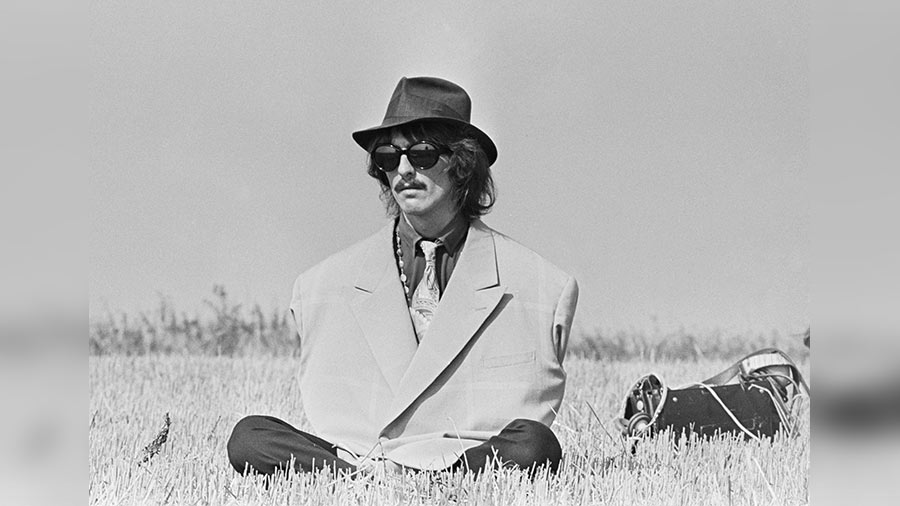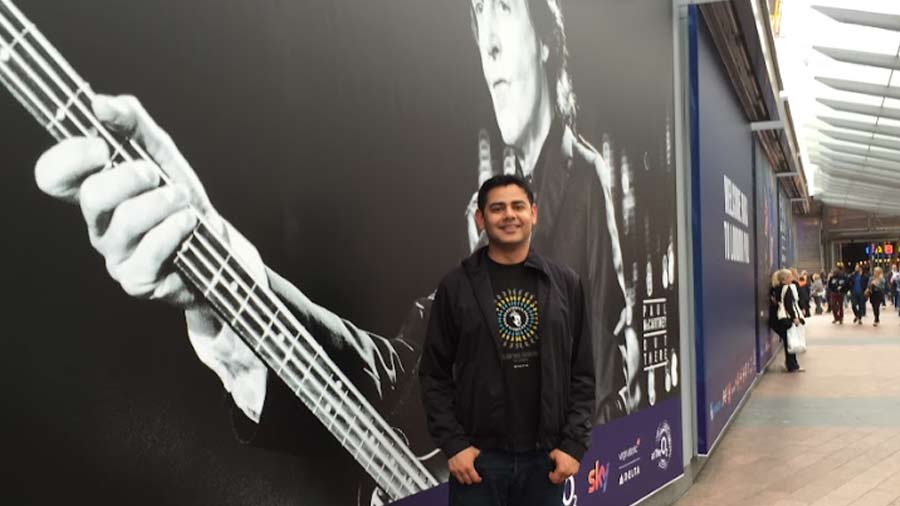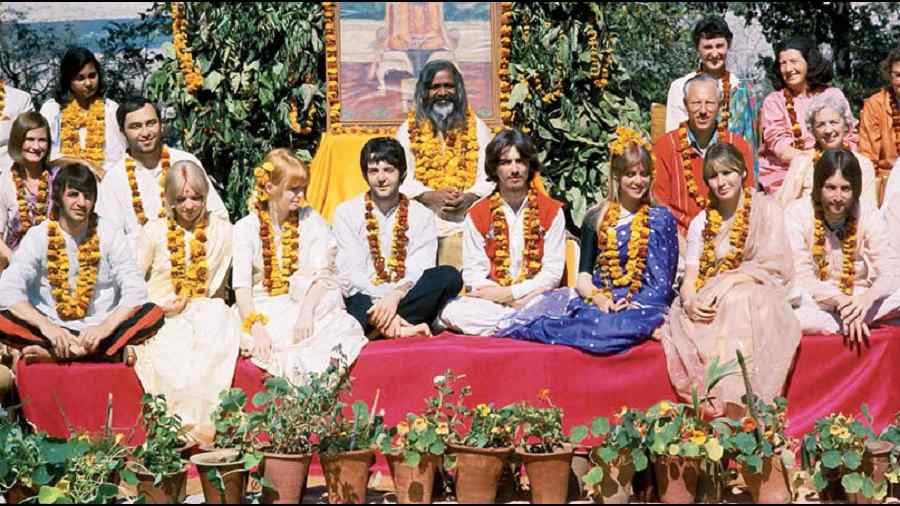It’s the summer of 1999. A young Bickram Ghosh is in a rented flat in north-west London while touring Europe with his guru Ravi Shankar, when the landlord knocks on the door to say there’s “some George” on the phone. When Ghosh picks up the receiver, the voice on the other end says, “Hi Bickram, it’s George Harrison”. Ghosh can’t believe that the legendary musician is just casually calling him on the landlord’s landline. He is even more surprised when Harrison says he’s always loved his work and would want him to play on his new album.
A couple of days later, the landlord knocks again, this time a lot more excited, to say there’s a huge stretch limousine under his window. Turning Ghosh into an instant neighbourhood celebrity, the limo sweeps Ghosh up and takes him to Harrison’s studio in his legendary Friar Park home in Henley-on-Thames. And he ends up playing tabla on the title-track of what would become Harrison’s final album, released after his death, Brainwashed.
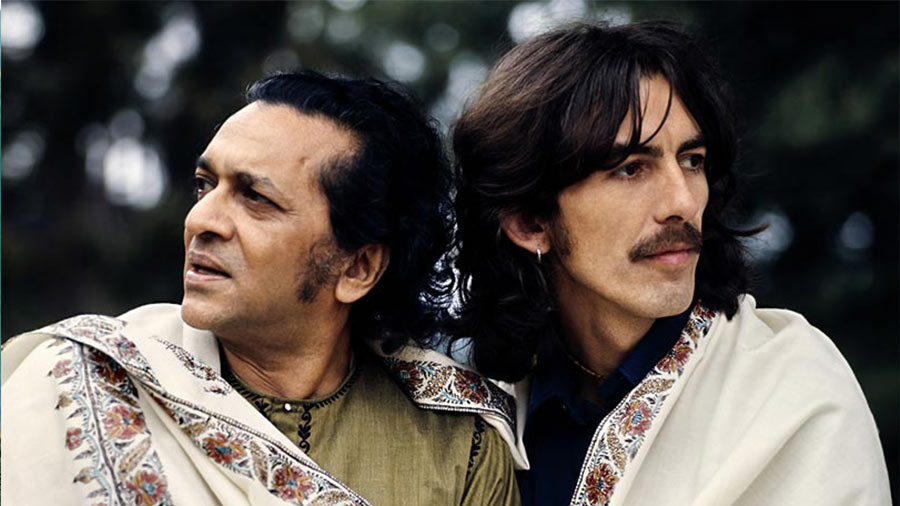
Ravi Shankar with Harrison georgeharrison.com
“I first met George around 1995 and got to know him better during the recording of the Chants of India album (Harrison’s collaboration with Shankar). George was a huge follower of Indian spirituality and it felt like this was his tribute to those spiritual connections. He was there throughout — ideating, chatting with us, even fixing microphones. I was taken aback by the humility of the man,” Ghosh recalls.
The value of smaller things
Fast forward to 1999 and Ghosh has arrived at Harrison’s studio to play on Brainwashed. It’s just Harrison and an engineer. Ghosh plays his bit and the recording is done in under two hours. “And then, what is really beautiful is that instead of sending me back, he took me home. We had lunch together, and talked for hours for the rest of the day. He was heavily into gardening and he took me around his huge garden.” It’s the very same garden that’s featured on the cover of Harrison’s debut solo smash All Things Must Pass and an architectural marvel in itself by many accounts.
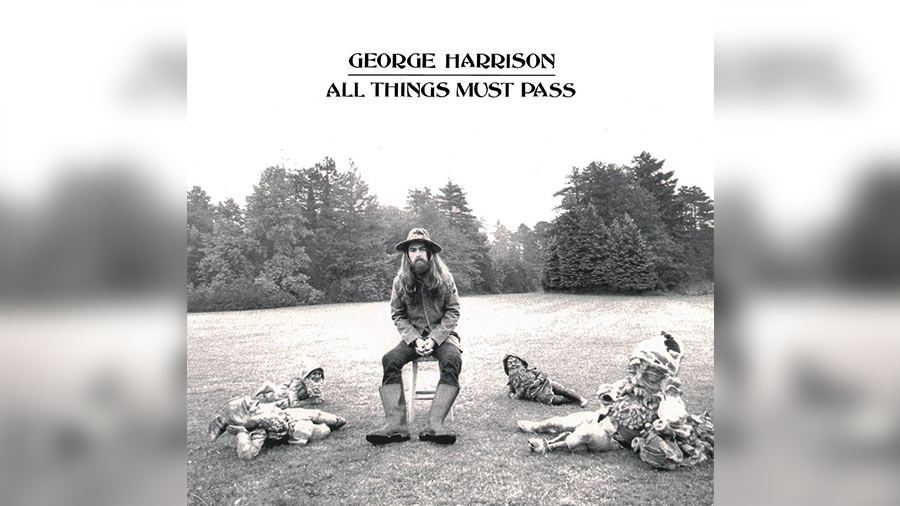
The album cover of Harrison’s ‘All Things Must Pass’
They talk about Indian classical music and his life as a Beatle: “His experience of being such a humongous superstar taught him the value of smaller things in life which he felt he had missed out on.” About his bandmate John Lennon, whose passing had deeply affected him, and his concern about the pressures on young artistes encountering fame: “He hoped they had the time to understand life before they got famous.”
After Harrison’s death and over the decades, Ghosh has remained in touch with his wife Olivia and son Dhani via the Shankars — most recently playing with Dhani and Anoushka Shankar at the Ravi Shankar Centenary concert in London last year.
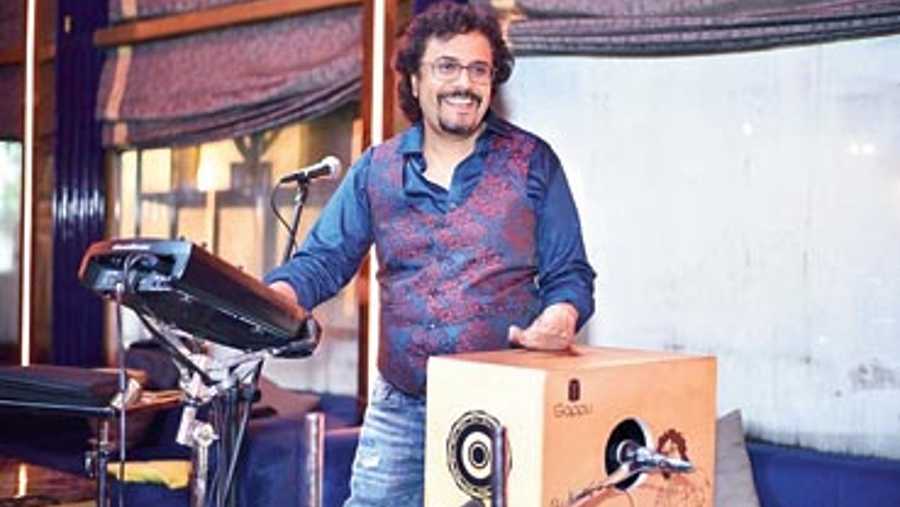
After Harrison’s death and over the decades, Ghosh has remained in touch with his wife Olivia and son Dhani via the Shankars TT archives
“George’s humility was deeply spiritual. He understood that the cosmos is a place run by a higher intelligence and this life is way beyond what we experience it to be. Hence, he understood that being a Beatle was something that the cosmos had decided for him. He had a lot of gratitude and at the same time his exploration, musically or otherwise, was also spiritual.”
Subhajit Banerjee is a lifelong Beatles fan and a British civil servant living in London.
